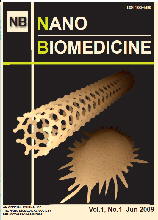Synopsis
Although the number of extracted cells from dental pulp (DPCs) is small and mesenchymal stem cells (MSCs) are fewer, MSCs are ideal for dentine regeneration on tooth defects. A dexamethasone (Dex) based mixture (Dex-based mixture) is an excellent factor to promote bone or dentine formation by MSCs. However, it might be required to enhance the effects. Then, immunosuppressive effect of Dex was focused. And, it was examined that transferrin (Tf), which involved in immune responses, would enhance the effects of Dex-based mixture for dentinogenesis.
The suspensions of DPCs from mandibular incisors of rats (rDPCs) were poured into 6 well culture plates. Tf was added to the medium in subculture of rDPCs containing Dex-based mixture. Quantity of Ca
2+ from mineralized nodules and level of alkaline phosphatase activity were measured in the culture. Statistical analysis of these results was performed using Dunnett's test.
Tf added to medium without Dex did not increase the amount of mineralized nodules by rDPCs. The level of Ca
2+ was low. The quantity of mineralized nodules by rDPCs increased in medium with Dex-based mixture and Tf. The role of Tf to enhance the effects of Dex was shown. The results of measured quantity of Ca
2+ shown that Tf does not act directly on rDPCs, it simply enhanced the effects of Dex.
Tf added to the medium with Dex-based mixture in subculture of rDPCs increased mineralized nodule aggregates formation. Tf act as a co-factor of Dex and enhance the effect
in vitro for dentine formation by DPCs.
Key words: transferrin, dexamethasone, dental pulp cell, in vitro, mineralized nodule
Full text PDF
DOI: 10.11344/nano.17.14
Nakama H, Matuo N, Maeda H, Yoshikawa M. Transferrin enhances the effects of dexamethasone on osteogenesis by dental pulp cells from rats. Nano Biomed 2025; 17(1): 14-24.
